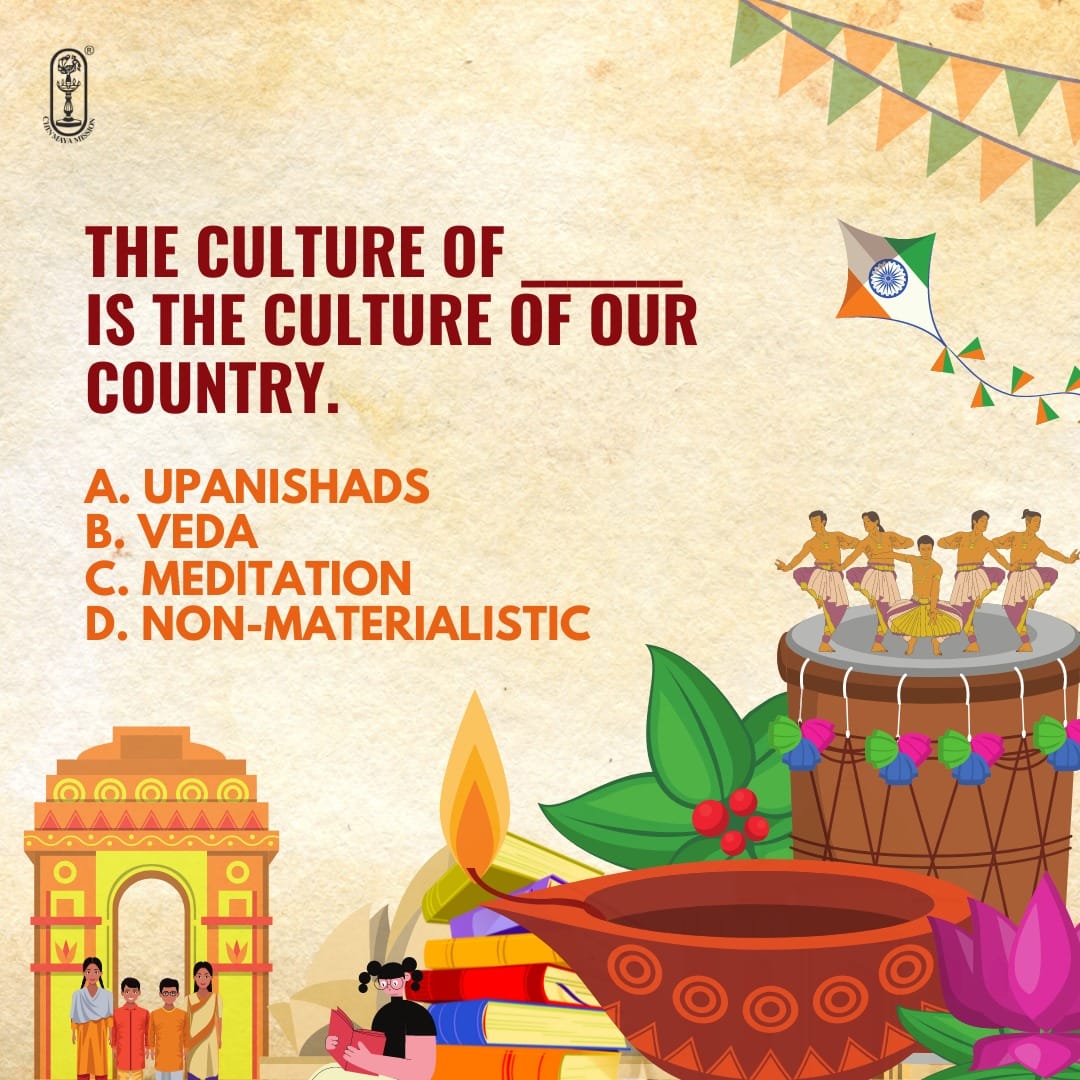The Essence of Dharmam (Dharma) - 8. Swami Krishnananda.
---------------------------------------------------------------------------------
--------------------------------------------------------------------------------
Wednesday, September 22, 2021.6:50.AM.
(Spoken on February 11th, 1973)
Post-8.
------------------------------------------------------------------------------
---------------------------------------------------------------------------------------------------------------------------
Dharmasya tattvam nihitaṃ guhāyāṃ, mahājano yena gataḥ panthāḥ (Śrī Caitanya Caritāmṛta Madhya 17.186) :
Essence :
We cannot know what dharma is because we cannot know what the universe is. We cannot know what the universe is because it is a blend of spirit and matter in a transcendent fashion in the Absolute. Therefore, the advice given to us is to follow the path of the great ones. Do not try to solve the mystery of dharma for ourselves. Dharmasya tattvam nihitaṃ guhāyāṃ: The secret of dharma is hidden within the cave, which means to say it is unknowable, very secret. Mahājano yena gataḥ panthāḥ: The right path for us would be the one which has been trodden by the great masters of yore. It is, “The footprints on the sands of time,” as the poet tells us of great ones. This is the supreme mystery of the cosmos.
-----------------------------------------------------------------------------------------------------------------------
Now, is the cosmos a place or a person or a spirit or a condition? What is the universe?
Essence :
The Bhagavadgita gives us four definitions. Sometimes the universe is regarded as a place. When Bhagavan Sri Krishna speaks of the Ultimate Reality as a kind of place, he calls it dhama – tad dhāma paramaṃ mama. Yad gatvā na nivartante tad dhāma paramaṃ mama (BG 15.6): Going where, going whither, people do not return; that is My abode. From this, we may sometimes be given to understand that the Ultimate Reality is a kind of place.
But sometimes he says, “Aham ātmā guḍākeśa sarvabhūtāśayasthitaḥ (BG10.20) : I am everywhere,” as if he is a person. Sometimes Reality is spoken of as a place or a destination to be reached as dhama, as gati, sometimes as a person, Purusha.
-----------------------------------------------------------------------------------------------------------------------
Puruṣaḥ sa paraḥ pārtha bhaktyā labhyas tvananyayā (BG 8.22); Īśvaraḥ sarvabhūtānāṁ hṛddeśe’rjuna tiṣṭhati (BG 18.61); aham ātmā guḍākeśa sarvabhūtāśayasthitaḥ (BG 10.20).
Essence :
When Bhagavan Sri Krishna uses the words Ishvara, Purusha, Aham, it looks as if the Ultimate Reality is a person, but sometimes he speaks of it as an immanent spirit. The Atman is defined as an immanent spirit, indestructible, present in everything. But sometimes Sri Krishna depicts it as a transcendent spirit, as Brahma, as Parampada, and so on.
-------------------------------------------------------------------------------------------------------------------------
Fourthly, reality is defined as a state, a condition. It is not a person, it is not a place, it is not even a spirit as we think of it in an anthropomorphic manner. It is only a state. This is brought out by such terms as tithi. Tithi means a condition. Eṣā brāhmī sthitiḥ pārtha (BG 2.72). This is a condition of Brahman. It is not a place of Brahman. It is a condition of Brahman. Tithi is a peculiar term
-----------------------------------------------------------------------------------------------------------------------.
All four aspects or definitions we will find in the Bhagavadgita: as a destination to be reached, as if it is a place; as a person to be loved, adored with bhakti; as a spirit to be contemplated; or as a condition to be realised. All these wonders we have in the Bhagavadgita gospel.
To be continued ...
=======================================================================






Comments